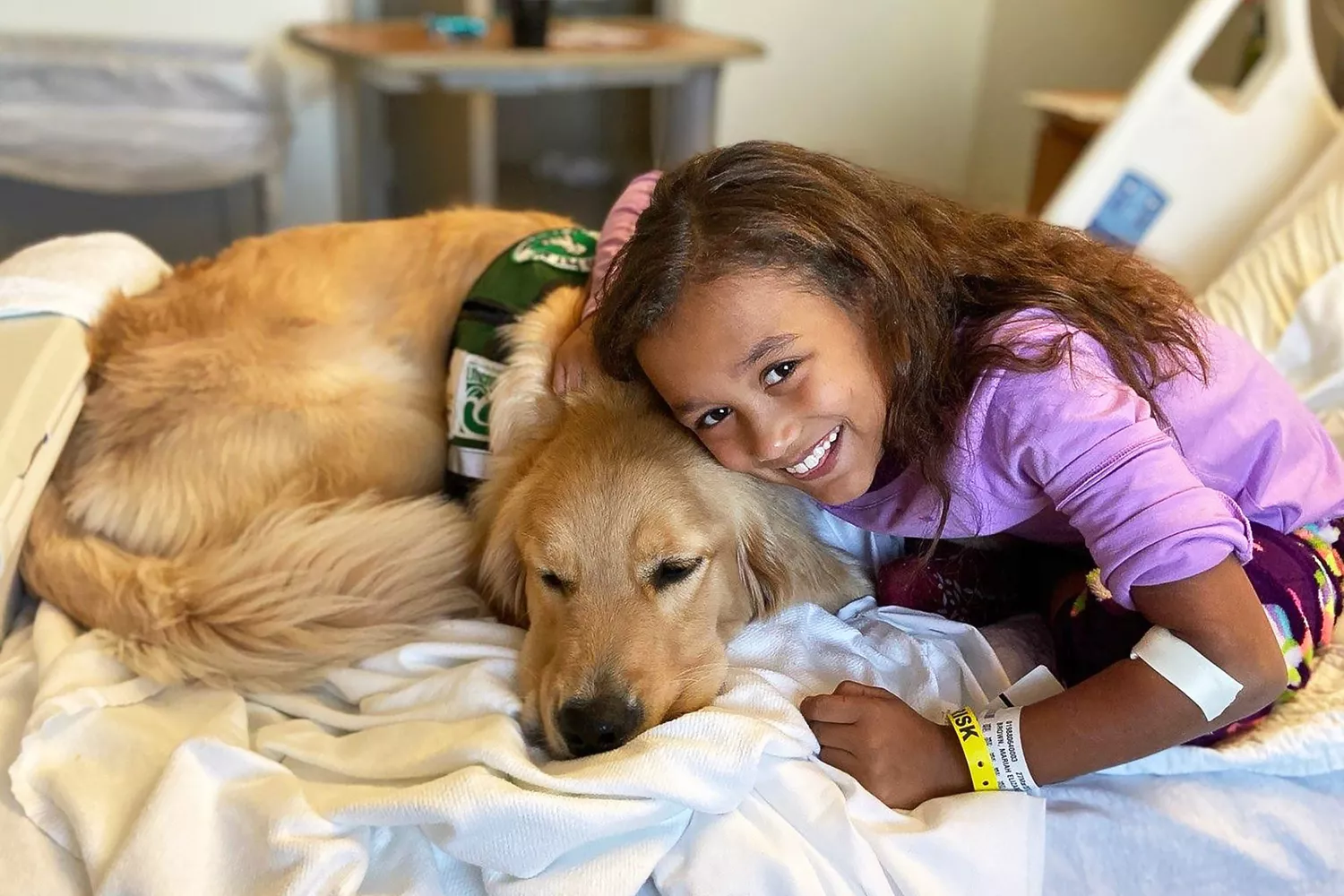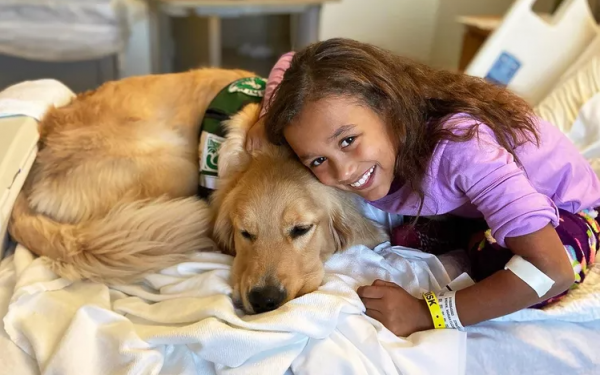For anyone who’s ever whispered a secret into a pup’s ear, supported by their unwavering trust, it’s easy to understand why a pair of 4–year–old littermates with beaming puppy smiles foster strong emotional connections at Huntsville Hospital for Women and Children in Alabama. As four-pawed wellness ambassadors of the Canines for Coping program, Asteroid and Orbit instinctively know what to do.
Sarah Savage-Jones is president of the Huntsville Hospital Foundation. She tells Daily Paws that normally, we’d think these remarkable golden retrievers would focus on the patient when they enter a room. But they’re trained to go where they’re needed most.
“That may be to a mother who’s about to break down from stress, or the child’s caregiver, who’s so fearful of the news they’ve received,” she says. “These dogs take on the emotions they sense and help the patient or loved one transfer those to the dog. They carry away those emotions. It’s pretty powerful stuff.”

Their proud dog mom is Stefani Williams, CCLS, the Canines for Coping coordinator. While goldens are natural people-pleasers, Williams says it’s obvious that Asteroid and Orbit, Alabama’s first facility dogs, know their visits are important. “We can see it on their faces and in their demeanor that they love coming to work and making a positive difference in the people they interact with,” she says. “Plus, they certainly don’t mind all of the treats and belly rubs that come with the job!”
Adorable Therapy Pony (and Dogs!) Bring Hope and Joy to Patients at Akron’s Children’s Hospital
Since 2019 when the program began, Asteroid—a facility dog since July of that year, and Orbit—who started in September 2020, have had more than 1,600 patient encounters a year. These loving pups have also provided “comforting cuddles” and stress relief to more than 5,000 hardworking hospital staff members. (And eaten more than 450 treats each month, and chewed five toys to joyous destruction each month!)
This type of healing makes a significant difference in the lives of everyone involved. “One of the highest compliments we get from families is when after a procedure or medical intervention, they say that they came to the hospital thinking there was no way their child was going to comply,” Williams says. “But incorporating the facility dog into the treatment plan allowed their child to be successful without experiencing trauma.”
Savage-Jones adds the hospital tracks several indicators to prove the power of the pups, including reduced patient pain and combative behavior, improved patient and family coping ability, and more successful medical goals. “All of these improve the outcomes of our pediatric patients because these dogs build trust and rapport with our hospitalized children and their parents, reducing their fear and anxiety,” she says.
This promising progress is why PetSmart Charities awarded Canines for Coping a grant of $186,000 to continue. Aimee Gilbreath is the organization’s president.
“It’s easy to see these specially-trained dogs bring cheer and comfort to patients, but what isn’t always evident is the way in which they influence therapeutic outcomes,” she says. “These two can serve as ambassadors for the many dogs that have made animal-assisted therapy a key component in treatment plans today. Plus, hospital staff members, who are on our minds especially now, also enjoy the benefits of their special brand of therapy.”
Spreading healing joy while fueled by treats and belly rubs. We love it! If you just can’t get enough of this dynamic duo, download their totally precious coloring page. We bet there’s a perfect spot for it on the fridge.



